At only 19 years of age, Spanish electro house DJ/producer Danny Avila‘s has blown past career milestones at a rate that only the likes of Porter Robinson can compete with. Having held down residences from Ibiza to Las Vegas and touring the world in between, it’s a wonder he manages to keep up with a weekly podcast and release tracks on his mentor, world renowned superstar DJ Tiësto’s record label.
Oddly, however, a handful of media outlets have released conflicting information on the young adonis. From lapses in his childhood history to rumors about him becoming famous by association to his father, the EDM blogosphere appears to have fallen short of painting an accurate picture of Avila. Unlikely as it may seem that any media source worth its salt would flat out misquote one of its subjects, before he opened for Tiësto at Skylab XX in Denver, Colorado, Avila sat down with DJOYbeat to clear up the misconceptions obscuring his reputation.
Disclaimer: Some of the information presented in this interview runs contrary to that of several other interviews with Avila available online, but DJOYbeat chooses to take him at his word.
Your latest original release was your collaboration with Twoloud, “Rock the Place.” How did the spark come about that inspired that track?
Well, pretty much they started working with the same agency as me, and I did meet the guys. And one of the guys is a legend; he’s been producing music for 25 years, and when they told me who they were and I heard all the new stuff they were gonna put out, I was like man, we should definitely do something together. And then we played a show together in Prague – I think it was in the end of 2013 – and after that we were playing stuff back and forth to each other and they had this melody idea, like really, really basic. They sent it to me and I started working on the melody breakdown, and then I saw them again I think, like, after three or four weeks when we made more or less the drop idea, and when the whole thing was ready then they finished the rest of the track. And then we sent it to Tijs – ahem, Tiësto – and he was like, “Man, I love it, I wanna release it.” I was really happy. It was my second track on Musical Freedom.
And you first started working with Tiësto when he chose you to fill a time slot, right?
Well, I first met Tiësto when I was 15 ’cause he played a show in Marbella, and I got to meet him really quickly. He was one of the first DJs who I ever saw, and I was really impressed. I’ve always been a big fan of Tiësto, and I was playing in Ibiza, I think it was [at the] Blue Marlin, and I saw him again when someone introduced me to him. Two weeks after that someone dropped out at Pacha, like, at the opening party and he said “Yeah, maybe Danny can play for us.” I played the opening night and it was insane, and from that night we just kept in contact.
Now that you’ve worked with him more as a signee of his label, what have you noticed he looks for in a track that prompts him to support it?
It’s difficult to explain. I think he looks for something unique, ’cause on Musical Freedom you can find tracks that go from deep house to really hard electro stuff. I think he looks for something that he can play, as well, so he looks for energy. Like, he knows he’s gonna play the record.
With your busy touring schedule, it’s amazing you’re still able to spend time in the studio on tracks and on your Ready to Jump mixes! That being said, a lot of EDM artists are releasing full-length albums these days. Do you have any plans to do so yourself?
No plans. I would like to do it, for sure, but nothing planned. But I think the cool thing nowadays is that you’re able to produce music on the road. Like, I always bring my laptop, and either I’m making edits for my DJ sets or I’m making a remix or ideas for melodies but I’m always making music. I think that’s a really cool thing we have nowadays. Album? I don’t know, man, maybe in the next [few] years. It’s a big deal.
About your childhood in Spain, you’re originally raised in Marbella but moved to Ibiza when you were 12. Was it difficult to be away from your family?
But I never lived in Ibiza!
Oh, you didn’t?
No, yeah, there’s – people say I lived in Ibiza but I was born in Madrid, lived in Marbella for like ten years, and then when I was 15 I moved back to Madrid. People think of Marbella like it’s for rich people, but really it’s just that for two months a year all the rich people come to Marbella but for the rest of the year it’s empty. Like, not that many people at all and it’s really normal. I went back to Madrid because I couldn’t really do anything in Marbella music-wise. When I was 15, I started to look for people to make music with and get shows. There’s a lot of different stories going around.
Well you did have a residency in Ibiza later on, right?
Yeah, by now I’ve spent a lot of time in Ibiza.
Well two of our big newspapers here in the US have called Las Vegas the new Ibiza. You were the youngest resident at Hakkasan so I know you’ve spent some time there. What do you think about that?
No, no, no. It’s a totally wrong title, I think. It’s like totally different concepts. I think that the similar thing is that both are, like, amazing places to party. People go there to have fun, and people go there for holidays, you know what I mean? But the rest is different. Like, Vegas is way more VIP kind of thing, and Ibiza is getting there a little bit as well but it has the whole underground feeling – the Ibiza feeling – that you can’t really find anywhere else. I think it’s two totally different things.
There’s a lot of speculation going around that your father, Jose, played a dominant role in your success as a musician because of his nightlife connections. How involved has he been in your career?
The thing is that before I was making music and DJing and all that stuff, I was wake boarding in a professional way so I was competing and traveling. Even when I was wake boarding – and skateboarding, ’cause I love all of those kinds of sports – my dad was supporting me. He was just like, “If that’s what you like to do, I support you,” you know what I mean? So then I started watching some videos of DJs on YouTube and I started DJing when I was 13 or 14 just for fun, and he was like “If you like it, just go for it; do whatever you want.” So he was the one who was driving me to the shows I was playing at 8:00 p.m. on a Saturday night in Marbella. He was driving me to see [friends] to make music with. He was just helping me because I was young and it was difficult – but he is not a club owner. He’s not involved in the music industry at all – he’s a dentist.
As you mentioned, you were a big fan of Tiësto for a while before you started working with him. Some time ago, he decided that he didn’t want to be “the trance guy” and made a lot more big room-oriented stuff. How do you feel about his new material as opposed to the old?
You know what I think about that? Tiësto, he does what he loves. If one day he wakes up and says, “Yo, I don’t like that type of music that much and I prefer to go this way ’cause I love this record and I wanna play it,” then why not? That’s pretty much what he did a few years ago and I totally support that, you know what I mean? It’s totally fine, and maybe in five years I’m a really big fan of deep house, [playing] a two-hour set of deep house.
Speaking of which, you mention liking deep house from time to time in interviews. Is that something you’ve really been digging lately?
I mean, I’ve been playing that stuff forever just ’cause I’m a big fan of more underground stuff, so I dunno, maybe when I play an after party – like when I play Pacha New York, I play three hours of big room and progressive, and then I bring it down and play more tech-y stuff.
A lot of guys your age would love to be in your position seeing as how you’re a famous DJ, but touring is actually a difficult lifestyle. What aspects of touring have ended up being more difficult than you expected?
Before I started touring, everyone was telling me, like, “Man, it’s so tiring,” but you don’t realize until you actually start touring that much – like, when you travel 24/7 and you don’t sleep for, like, three days, and you have to play a show, and then a show and then a show – then that’s when you realize how tiring it is.
You must have heard before that you have a really good look. Do you have any plans to do work in fashion, film, or anything else in front of the lens?
Thank you! I mean, I like movies and that stuff so maybe. I like fashion as well, so yeah.
And what else is on the horizon for you?
I’ve been doing my Ready To Jump series, but I’m gonna be starting a new concept called “More,” and it’s just deep house and chill out kind of stuff. I’m excited to see people’s reaction to that.
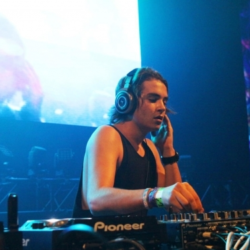
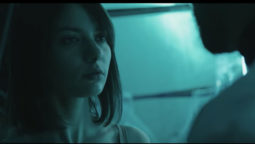
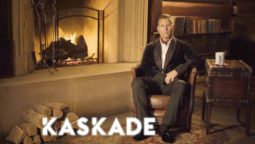
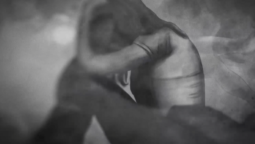
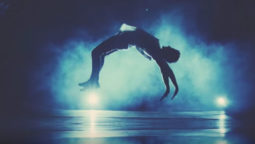
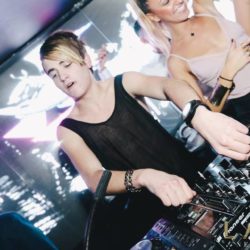

Join the discussion
comments powered by Disqus